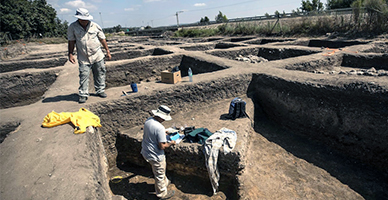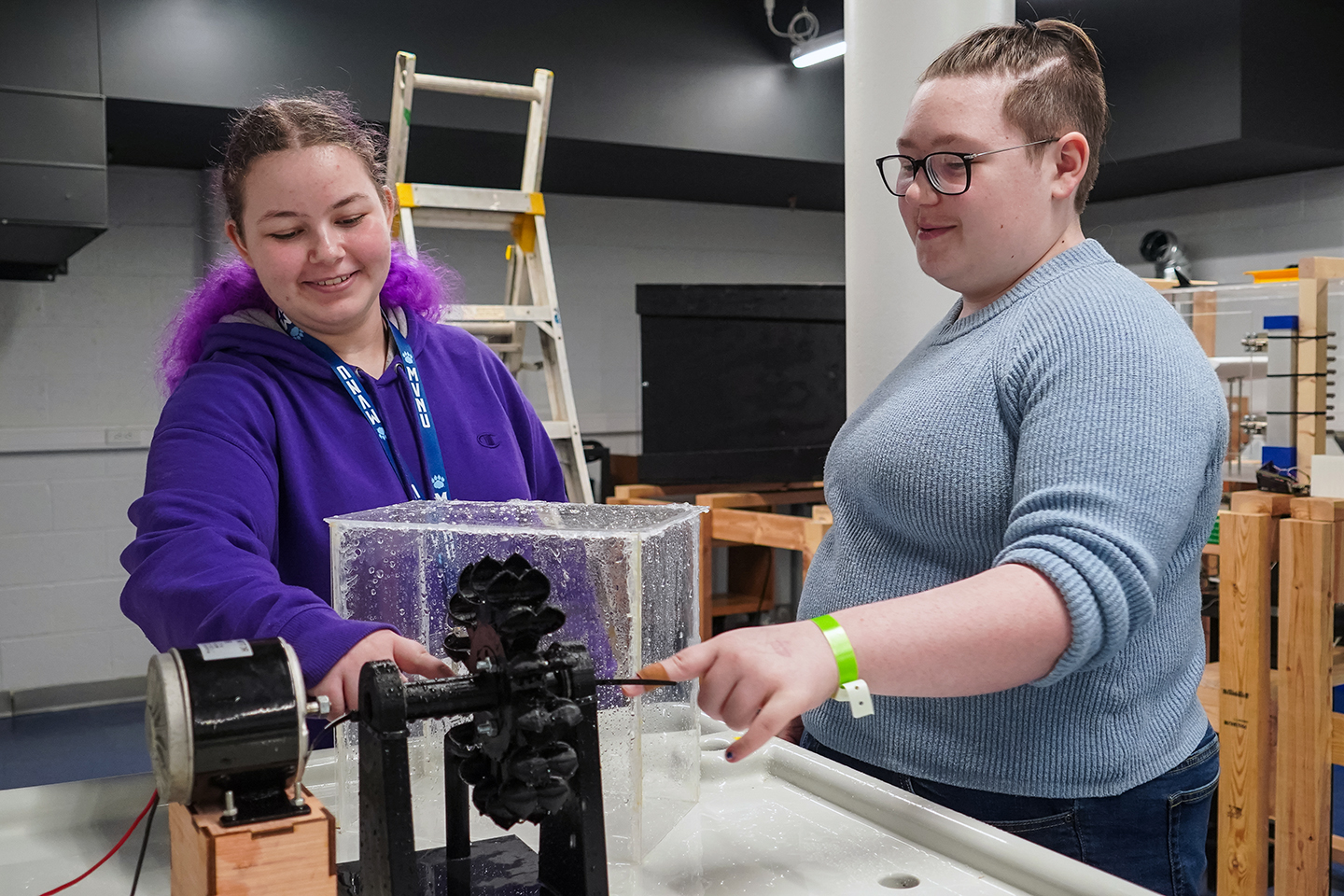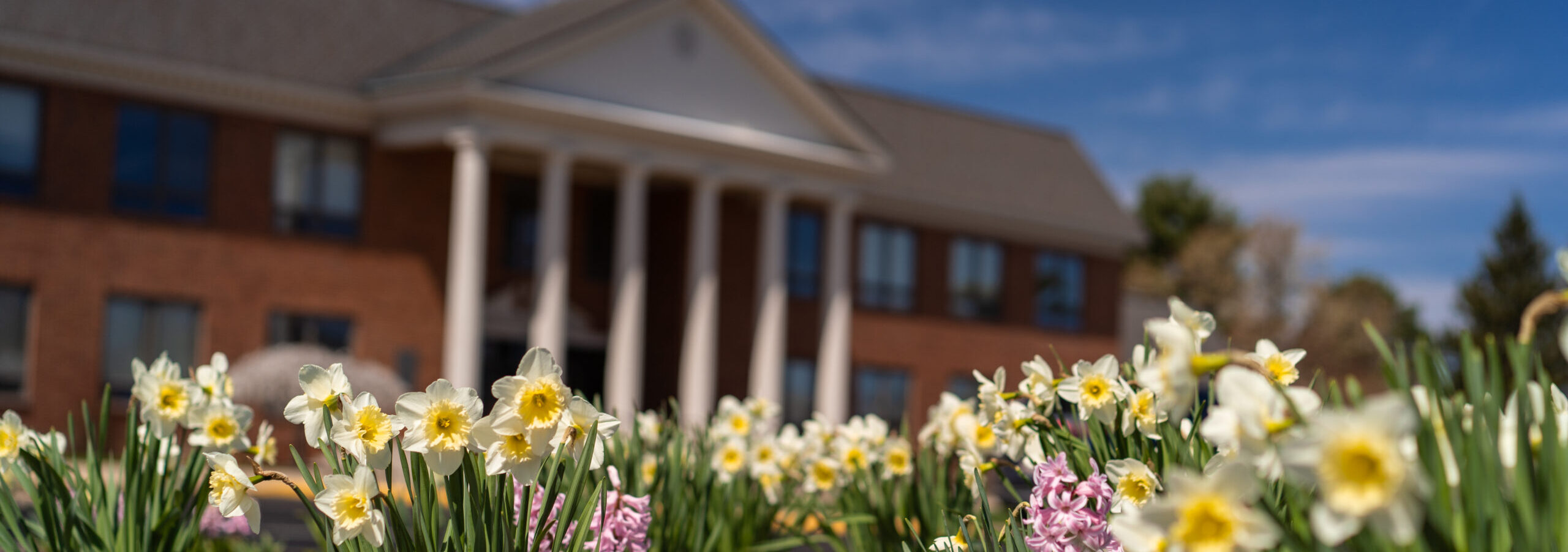MVNU students to open excavations of the City of Hazor
MOUNT VERNON, Ohio (February 14, 2023) — Ministry and History students at Mount Vernon Nazarene University have a once-in-a-lifetime opportunity to be among the first to dig at a lower Late Bronze Age Canaanite city this summer. Four years ago, trip leader and professor of Biblical Literature Dr. Mike VanZant coordinated a dig in southern…
February 14, 2023
- Academics

MOUNT VERNON, Ohio (February 14, 2023) — Ministry and History students at Mount Vernon Nazarene University have a once-in-a-lifetime opportunity to be among the first to dig at a lower Late Bronze Age Canaanite city this summer.
Four years ago, trip leader and professor of Biblical Literature Dr. Mike VanZant coordinated a dig in southern Israel. The trip was delayed several times because of the global pandemic and travel restrictions. As the world has reopened, VanZant learned the dig site would not be open this summer. He made a quick pivot and partnered with an Israeli archeologist who invited MVNU to join students and volunteers from Canada, Europe and Israel to open excavations of the city of Hazor.
“The Late Bronze Canaanite city dates to the time of biblical stories of Joshua and the conquest of the Land,” said VanZant. “Known in Joshua’s day as ‘the head of all those kingdoms,’ the tell (raised mound marking the site of an ancient city) of Hazor is today the largest in Israel at 200 acres — 10 times larger than Jerusalem of David’s days.”
VanZant, who has been an archeologist for nearly 30 years, will serve as a field supervisor on the dig. He said Joshua 11:10 describes the Canaanite city falling to the Israelites. The lower city was never rebuilt following the destruction in the Late Bronze Age.
“We will help open excavation of this ancient city which LIDAR radar reveals the ruins as mere feet below the surface. Our students will have opportunity to discover history that has not been seen in nearly 3,500 years,” he said. “I can say, holding history in your hand, even if a simple broken pot, changes one’s entire perspective of the Bible and the people described in it. I want to see the faces of my students as they hold an artifact as the first person to touch it since the days of Joshua.”
VanZant, who will retire on July 31, knows the value and importance of trips like this expand beyond classroom and degree requirements to provide transformative experiences.
“I have seen God use a trip like this to motivate students to be better preachers and teachers of the Bible in the local church,” he said. “I have also seen God call a young man through one of these trips to go on to earn a Ph.D., and he is teaching Bible in Africa today. Nothing could cap my career better than for these students to have the same opportunity that God used to call me to be a professor of Biblical Literature, and to see what God will do in each of them. They will learn much about themselves, other cultures, current and ancient, and their faith. Which, of course, is the reason I do what I have done for all these years.”
For History and Ministry majors to earn a minor in Archeology, they are required to complete core work which includes Historical Geography of the Bible Lands and Introduction to Biblical Archeology Field Work as well as field experience. Time in the field — on the dig and in the land itself — provide a well-rounded understanding of Biblical History that is more than a page in a book.
“The students are taking this minor for two reasons: Some are History majors and the courses will expose them to modern approaches to understanding historical events and why they happened. Others are Ministry majors who desire to have a deeper knowledge of the biblical world to enhance their preaching and teaching,” said VanZant.
Typically, archeology trips are planned for every two years. For current juniors and seniors, this trip is necessary to graduate on time.
Just days before the trip deposit was due in early February, MVNU learned of large increases to established costs because of inflation and increases in flights, land travel, room and board. VanZant quickly responded to negotiate smaller increases and partnered with Millar College in Canada for cost savings measures. However, the increase in cost could be prohibitive for the seven remaining students.
“Our total budget overage at this point is at about $5,000 with a contingency fund. The four travelers, including myself, are most concerned for the students’ needs. Inflation has hurt families’ financial situation. They are doing their best to raise the money for the $5,300, but I cannot ask them to pay more.”
Trips like this are billed to students as course fees. If students have financial aid above tuition, those funds can be applied. Some students apply for additional student loans to cover the costs. Any outstanding balances can be paid over a four month period of time.
“These students have gone through much uncertainly and difficulties at college since the spring of 2020 and COVID. Most of them are working up a sweat for each payment. One student is working multiple jobs while taking a full semester load of course. The younger ones are sacrificing their summer and their income for this opportunity with the uncertainty of when this trip might happen again,” he said. “I have been doing these types of trips for 30 years, but this has been the most difficult yet most incredible journey to get to where we are right now. I have an assurance in my heart that this trip is supposed to happen. We have prayed as a group for God’s provision and touch on every step.”
Those moved to contribute to the cost of the trip may do so here, designating “Israel 2023.” Donations will be applied to trip overage expenses. Any additional funds will be marked as scholarships to defray student costs.
For more information on MVNU’s Christian Ministry program, click here.
###



